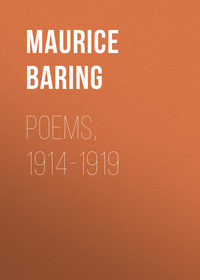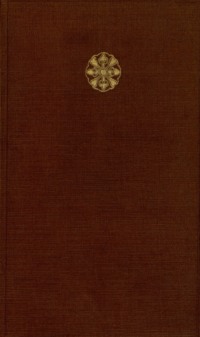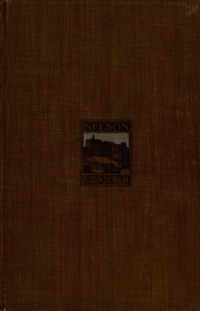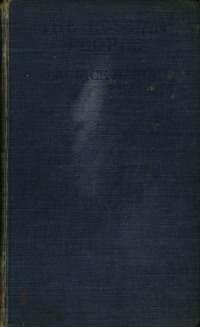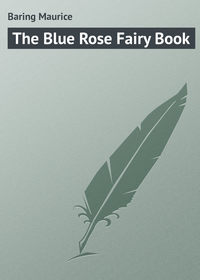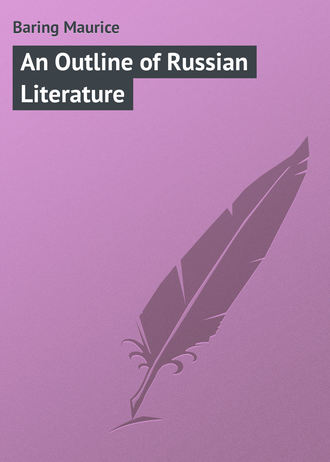 полная версия
полная версияAn Outline of Russian Literature

Baring Maurice
An Outline of Russian Literature
PREFACE
The chief difficulty which Englishmen have experienced in writing about Russia has, up till quite lately, been the prevailing ignorance of the English public with regard to all that concerns Russian affairs. A singularly intelligent Russian, who is connected with the Art Theatre at Moscow, said to me that he feared the new interest taken by English intellectuals with regard to Russian literature and Russian art. He was delighted, of course, that they should be interested in Russian affairs, but he feared their interest was in danger of being crystallized in a false shape and directed into erroneous channels.
This ignorance will always remain until English people go to Russia and learn to know the Russian people at first hand. It is not enough to be acquainted with a certain number of Russian writers; I say a certain number advisedly, because, although it is true that such writers as Tolstoy and Turgenev have long been naturalized in England, it is equally true that some of the greatest and most typical of Russian authors have not yet been translated.
There is in England no complete translation of Pushkin. This is much the same as though there were in Russia no complete translation of Shakespeare or Milton. I do not mean by this that Pushkin is as great a poet as Shakespeare or Milton, but I do mean that he is the most national and the most important of all Russian writers. There is no translation of Saltykov, the greatest of Russian satirists; there is no complete translation of Leskov, one of her greatest novelists, while Russian criticism and philosophy, as well as almost the whole of Russian poetry, is completely beyond the ken of England. The knowledge of what Russian civilisation, with its glorious fruit of literature, consists in, is still a sealed book so far as England is concerned.
M. B.CHAPTER I
THE ORIGINS
For the purposes of the average Russian, and still more for the purposes of the foreigner, Russian literature begins with the nineteenth century, that is to say with the reign of Alexander I. It was then that the literary fruits on which Russia has since fed were born. The seeds were sown, of course, centuries earlier; but the history of Russian literature up to the nineteenth century is not a history of literature, it is the history of Russia. It may well be objected that it is difficult to separate Russian literature from Russian history; that for the understanding of Russian literature an understanding of Russian history is indispensable. This is probably true; but, in a sketch of this dimension, it would be quite impossible to give even an adequate outline of all the vicissitudes in the life of the Russian people which have helped and hindered, blighted and fostered the growth of the Russian tree of letters. All that one can do is to mention some of the chief landmarks amongst the events which directly affected the growth of Russian literature until the dawn of that epoch when its fruits became palpable to Russia and to the world.
The first of these facts is the existence of a Slav race on the banks of the Dnieper in the seventh and eighth centuries, and the growth of cities and trade centres such as Kiev, Smolensk, and Novgorod, which seem already to have been considerable settlements when the earliest Russian records were written. Of these, from the point of view of literature, Kiev was the most important. Kiev on the Dnieper was the mother of Russian culture; Moscow and St. Petersburg became afterwards the heirs of Kiev.
Another factor of vital historical importance which had an indirect effect on the history of Russian literature was the coming of the Norsemen into Russia at the beginning of the ninth century. They came as armed merchants from Scandinavia; they founded and organized principalities; they took Novgorod and Kiev. The Scandinavian Viking became the Russian Kniaz, and the Varanger principality of Kiev became the kernel of the Russian State. In the course of time, the Norsemen became merged in the Slavs, but left traces of their origin in the Sagas, the Byliny, which spread from Kiev all over Russia, and still survive in some distant governments. Hence the Norse names Oleg (Helgi), Olga (Helga), Igor (Ingvar). The word Russian, Rus, the origin and etymology of which are shrouded in obscurity, was first applied to the men-at-arms who formed the higher class of society in the early Varanger states.
The next determining factor in the early history of Russian literature is the Church. Vladimir, Prince of Kiev, married the sister of the Emperor of Byzantium and was baptized; henceforward Christianity began to spread (987-8), but the momentous fact is that it was the Christianity of the East. The pearl of the Gospels, says Soloviev, was covered over with the dust of Byzantium, and Russia was committed to the Greek tradition, the Greek rivalry with the West and was consequently excluded from the civilization of the West and the great intellectual community of which Rome was the centre. This fact is of far-reaching and momentous importance. No less important was the introduction of the Slavonic liturgy, which was invented by two Greek brothers from Saloniki, in the ninth century, who tried to force their Macedonian dialect on all the Slavs, and succeeded in the case of Bulgaria and Servia. A century or so later it reached the Russian Slavs. Through Bulgaria, the Russians acquired a ready-made literature and a written language in a dialect which was partly Bulgarian and partly Macedonian, or rather Macedonian with Bulgarian modifications. The possession of a written language acted as a lever as far as culture was concerned. In the eleventh century, Kiev was one of the most enlightened cities in Europe.
The rulers of Kiev were at this time related to the Kings of France, Hungary, Norway, and even England. The Russian MSS. of the eleventh century equal the best MSS. of Western Europe of the same period. The city of Kiev was a home of wealth, learning, and art. Byzantine artists went to Kiev, and Kiev sent Russian painters to the West. There seemed at this time to be no barrier between East and West. Nothing could be more promising than such a beginning; but the course of Russian history was not destined to run smooth. In the middle of the eleventh century, the foundations of a durable barrier between Russia and Western Europe were laid. This was brought about by the schism of the Eastern and Western Churches. The schism arose out of the immemorial rivalry between the Greeks and the Latins, a rivalry which ever since then has continued to exist between Rome and Byzantium. The Slavs, whom the matter did not concern, and who were naturally tolerant, were the victims of a racial hatred and a rivalry wholly alien to them. It may seem unnecessary to dwell upon what some may regard as an ancient and trivial ecclesiastical dispute. But, in its effects and in its results, this “Querelle de Moine,” as Leo X said when he heard of Luther’s action, was as momentous for the East as the Reformation was for the West. Sir Charles Eliot says the schism of the Churches ranks in importance with the foundation of Constantinople and the Coronation of Charlemagne as one of the turning points in the relations of West and East. He says that for the East it was of doleful import, since it prevented the two great divisions from combining against the common enemy, the Turk. It was of still more doleful import for Russia, for the schism erected a barrier, which soon became formidable, between it and the civilizing influences of Western Europe.
But in the eleventh and twelfth centuries, the existence of this growing barrier was not yet perceptible. The eleventh and twelfth centuries in Russia were an age of Sagas and “Byliny,” already clearly stamped with the democratic character and ideal that is at the root of all Russian literature, and which offer so sharp a contrast to Greek and Western ideals. In the Russian Sagas, the most popular hero is the peasant’s son, who is despised and rejected, but at the critical moment displays superhuman strength and saves his country from the enemy; and in return for his services is allowed to drink his fill for three years in a tavern.
But by far the most interesting remains of the literature of Kiev which have reached posterity are the Chronicle of Kiev, often called the Chronicle of Nestor, finished at the beginning of the twelfth century, and the Story of the Raid of Prince Igor. The Chronicle of Kiev, written in a cloister, rich in that epic detail and democratic quality that characterize the Sagas, is the basis of all later chronicles dealing with the early history of Russia. The Story of the Raid of Prince Igor, which also belongs to the twelfth century, a prose epic, is not only one of the most remarkable memorials of the ancient written language of Russia; but by virtue of its originality, its historical truth, its vividness, it holds a unique place in the literary history of Europe, and offers an interesting contrast to the Chanson de Roland.
The Story of the Raid of Igor tells of an expedition made in the year 1185 against the Polovtsy, a tribe of nomads, by Igor the son of Sviatoslav, Prince of Novgorod, together with other Princes. The story tells how the Princes set out and raid the enemy’s country; how, successful at first, they are attacked by overwhelming numbers and defeated; how Igor is taken prisoner; and how in the end he escapes and returns home. The story is written in rhythmical prose, with passages where the rhythm has a more strongly accentuated quality as of unrhymed verse. All the incidents recorded in the epic agree in every respect with the narrative of the same events which is to be found in the Chronicle of Kiev. It is only the manner of presenting them which is different. What gives the epic a unique interest is that the author must indubitably have belonged to the militia of Sviatoslav, Grand Duke of Kiev; and, if he was not an eye-witness of the events he describes with such wealth of detail, his knowledge was at any rate first-hand and intimate.
But the epic is as remarkable for the quality of its style as it is for the historical interest of its subject-matter. It plunges, after a short introduction, in medias res, and the narrative is concentrated on the dramatic moments which give rise to the expression of lyrical feeling, pathos and description – such as the battle, the defeat, the ominous dream of the Grand Duke, and the lament of the wife of Igor on the walls of Putivl —
“I will fly” – she says —“Like the cuckoo down the Don;I will wet my beaver sleeveIn the river Kayala;I will wash the bleeding wounds of the Prince,The wounds of his strong body.”· · · · · ·“O Wind, little wind,Why, Sir,Why do you blow so fiercely?Why, on your light wingsDo you blow the arrows of the robbers against my husband’s warriors?Is it not enough for you to blow high beneath the clouds,To rock the ships on the blue sea?Why, Sir, have you scattered my joy on the grassy plain?”Throughout the poem, Nature plays an active part in the events. When Igor is defeated, the grasses bend with pity and the trees are bowed to the earth with grief. When Igor escapes, he talks with the river Don as he fords it, and when the bandits follow him, the woodpeckers tell them the way with their tapping. The poem, which contains much lamentation over the quarrels of the Princes and the injury ensuing from them to the Russian people, ends in the major key. Igor is restored to his native soil, he goes to Kiev to give thanks in the Church, and the people acclaim the old Princes and then the young Princes with song.
A transcript of the poem, made probably at the end of the fourteenth century, was first discovered in 1795 by Count Musin-Pushkin, and first published in 1800, when it made the same kind of impression as the publication of the Songs of Ossian. It was not, however, open to Dr. Johnson’s objection – “Show me the originals” – for the fourteenth century transcript of the original then existed and was inspected and considered unmistakably genuine by Karamzin and others, but was unfortunately burnt in the fire of Moscow.1 The poem has been translated into English, French and German, and has given rise to a whole literature of commentaries.
Up to the twelfth century, Russian life was concentrated in the splendid and prosperous centre of Kiev; but in the thirteenth century came a crushing blow which was destined to set back the clock of Russian culture for three hundred years, namely, the Tartar invasion. Kiev was destroyed in 1240. After this, the South was abandoned; Lithuania and Poland became entirely separated from the East; the Eastern principalities centred round Moscow; the Metropolitan of Kiev transferred his see to Moscow in 1328; and by the fourteenth century Moscow had taken the place of Kiev, and had become the kernel of Russian life and culture. Russia under the dominion of the Tartar yoke was intellectually stagnant. The Church alone retained its independence, and when Constantinople fell, Moscow declared itself to be the third and last Rome: but the independence of the Church, although it kept national feeling alive under the Tartar yoke, made for stagnation rather than progress, and the barrier between Russia and the culture of the West was now solid and visible.
From the fourteenth century until the beginning of the nineteenth century, Russian literature, instead of being a panorama of various and equally splendid periods of production, such as the Elizabethan epoch, the Jacobean epoch, and the Georgian epoch, or, as in France, the Renaissance, the Grand Siècle, and the philosophic era of the eighteenth century, has nothing to show at all to the outward world; for during all this time the soil from which it was to grow was merely being prepared, and gradually, with difficulty and delay, gaining access to such influences as would make any growth possible. All that is important, as far as literature is concerned, in this period, are those events and factors which had the effect of making breaches in the wall which shut Russia off from the rest of Europe; in letting in that light which was necessary for any literary plants to grow, and in removing those obstacles which prevented Russia from enjoying her rightful heritage among the rest of her sister European nations: a heritage which she had well employed in earlier days, and which she had lost for a time owing to the barbarian invasion.
The first event which made a breach in the wall was the marriage of Ivan III, Tsar of Moscow, to Sophia Palæologa, the niece of the last of the Byzantine Emperors. She brought with her Italian architects and other foreigners, and the work of Peter the Great, of opening a window in Russia on to Europe, was begun.
The first printing press was established in Moscow during the reign of Ivan the Terrible, and the first book was printed in 1564. But literature was still under the direct control of the Church, and the Church looked upon all innovations and all foreign learning with the deepest mistrust. At the beginning of the seventeenth century, Peter the Great had a strange forerunner in the shape of that enigmatic historical personage, the false Demetrius, who claimed to be the murdered son of Ivan the Terrible, and who, in spite of his western ideas, Polish manners, and Latin culture, succeeded in occupying the throne of Moscow for a year. His ideal was one of progress; but he came too soon, and paid for his prematurity with his life.
But it was from Kiev and Poland that the fruitful winds of enlightenment were next to blow. Kiev, re-risen from its ruins and recovered from its long slumber, became a centre of learning, and possessed a college whose curriculum was modelled on the Jesuit schools; and although Moscow looked upon Kiev with mistrust, an imperative demand for schools arose in Moscow. In the meantime a religious question had arisen fraught with consequences for Russia: namely that of the revision of the Liturgical books, into the text of which, after continuous copying and recopying, errors had crept. The demand for revision met with great opposition, and ended ultimately in producing a great schism in the Russian Church, which has never been healed. But, with the exception of the Little Russians, there was no one at Moscow capable of preparing texts for printing or of conducting schools. The demand for schools and the decision to revise the texts were simultaneous. The revision was carried out between 1653-7, and a migration of Kiev scholars to Moscow came about at the same time. In 1665 Latin was taught in Moscow by Simeon Polotsky, who was the first Russian verse-maker. It is impossible to call him a poet; he wrote what was called syllabic verse: the number of syllables taking the place of rhythm. As a pioneer of culture, he deserves fame; but in the interest of literature, it was a misfortune that his tradition was followed until the middle of the eighteenth century.
In the latter half of the seventeenth century, another influence besides that of Kiev and Poland made itself felt. A fresh breach in the wall came from another quarter. The German suburb in Moscow in the seventeenth century, called the Sloboda, became a centre of European culture. Here dwelt the foreign officers and soldiers, capitalists and artisans, who brought with them the technical skill and the culture of Western Europe. It was here that the Russian stage was born. The Protestant pastor of the Sloboda, Gregory, was commanded to write a comedy by the Tsar Alexis, in 1672, on the occasion of the birth of the Tsarevitch. A theatre was built in the village of Preobrazhenskoe (Transfiguration), and a play on the subject of Esther and Ahasuerus was produced there. It was here also in 1674 that the ballet was introduced. A regular company was formed; several plays translated from the German were produced, and the first original play written in Russia was The Prodigal Son, by Simeon Polotsky.
Thus, at the end of the seventeenth century, Russia was ready for any one who should be able to give a decisive blow to the now crumbling wall between herself and the West. For, by the end of the seventeenth century, Russia, after having been centralized in Moscow by Ivan III, and enlarged by Ivan IV, had thrown off the Tartar yoke. She had passed through a period of intestine strife, trouble, anarchy, and pretenders, not unlike the Wars of the Roses; she had fought Poland throughout the whole of the seventeenth century, from her darkest hour of anarchy, when the Poles occupied Moscow. It was then that Russia had arisen, expelled the invaders, reasserted her nationality and her independence, and finally emerged out of all these vicissitudes, the great Slavonic state; while Poland, Russia’s superior in culture and civilization, had sunk into the position of a dependency.
The man whom the epoch needed was forthcoming. His name was Peter. He carried on the work which had been begun, but in quite an original manner, and gave it a different character. He not only made a breach in the wall, but he forced on his stubborn and conservative subjects the habits and customs of the West. He revolutionized the government and the Church, and turned the whole country upside down with his explosive genius. He abolished the Russian Patriarchate, and crushed the power of the Church once and for all, by making it entirely depend on the State, as it still does. He simplified the Russian script and the written language; he caused to be made innumerable translations of foreign works on history, geography, and jurisprudence. He founded the first Russian newspaper. But Peter the Great did not try to draw Russia into an alien path; he urged his country with whip, kick, and spur to regain its due place, which it had lost by lagging behind, on the path it was naturally following. Peter the Great’s reforms, his manifold and superhuman activity, produced no immediate fruits in literature. How could it? To blame him for this would be like blaming a gardener for not producing new roses at a time when he was relaying the garden. He was completely successful in opening a window on to Europe, through which Western influence could stream into Russia. This was not slow in coming about; and the foreign influence from the end of the reign of Peter the Great onwards divided directly into two different currents: the French and the German. The chief representatives of the German influence in the eighteenth century were Tatishchev, the founder of Russian history, and Michael Lomonosov.
Michael Lomonosov (1714-1765), a man with an incredibly wide intellectual range, was a mathematician, a chemist, an astronomer, a political economist, a historian, an electrician, a geologist, a grammarian and a poet. The son of a peasant, after an education acquired painfully in the greatest privation, he studied at Marburg and Freiburg. He was the Peter the Great of the Russian language; he scratched off the crust of foreign barbarisms, and still more by his example than his precepts – which were pedantic – he displayed it in its native purity, and left it as an instrument ready tuned for a great player. He fought for knowledge, and did all he could to further the founding of the University of Moscow, which was done in 1755 by the Empress Elizabeth. This last event is one of the most important landmarks in the history of Russian culture.
The foremost representative of French influence was Prince Kantemir (1708-44), who wrote the first Russian literary verse – satires – in the pseudo-classic French manner, modelled on Boileau. But by far the most abundant source of French ideas in Russia during the eighteenth century was Catherine II, the German Princess. During Catherine’s reign, French influence was predominant in Russia. The Empress was the friend of Voltaire, Montesquieu, and Diderot. Diderot came to St. Petersburg, and the Russian military schools were flooded with French teachers. Voltaire and Rousseau were the fashion, and cultured society was platonically enamoured of the Rights of Man. Catherine herself, besides being a great ruler and diplomatist, was a large-minded philosopher, an elegant and witty writer. But the French Revolution had a damping effect on all liberal enthusiasm, for the one thing an autocrat, however enlightened, finds difficulty in understanding, is a revolution.
This change of point of view proved disastrous for the writer of what is the most thoughtful book of the age: namely Radishchev, an official who wrote a book in twenty-five chapters called A Journey from St. Petersburg to Moscow. Radishchev gave a simple and true account of the effects of serfdom, a series of pictures drawn without exaggeration, showing the appalling evils of the system, and appealing to the conscience of the slave-owners; the book contained also a condemnation of the Censorship. It appeared in 1790, with the permission of the police. It was too late for the times; for in 1790 the events in France were making all the rulers of Europe pensive. Radishchev was accused of being a rebel, and was condemned to death. The sentence was commuted to one of banishment to Eastern Siberia. He was pardoned by the Emperor Paul, and reinstated by the Emperor Alexander; but he ultimately committed suicide on being threatened in jest with exile once more. Until 1905 it was very difficult to get a copy of this book. Thus Radishchev stands out as the martyr of Russian literature; the first writer to suffer for expressing opinions at the wrong moment: opinions which had they been stated in this case twenty years sooner would have coincided with those published by the Empress herself.
Catherine’s reign, which left behind it many splendid results, and had the effect of bestowing European culture on Russia, produced hardly a single poet or prose-writer whose work can be read with pleasure to-day, although a great importance was attached to the writing of verse. There were poets in profusion, especially writers of Odes, the best known of whom was Derzhavin (1743-1816), a brilliant master of the pseudo-classical, in whose work, in spite of its antiquated convention, elements of real poetical beauty are to be found, which entitle him to be called the first Russian poet. But so far no national literature had been produced. French was the language of the cultured classes. Literature had become an artificial plaything, to be played with according to French rules; but the Russian language was waiting there, a language which possessed, as Lomonosov said, “the vivacity of French, the strength of German, the softness of Italian, the richness and powerful conciseness of Greek and Latin” – waiting for some one who should have the desire and the power to use it.


